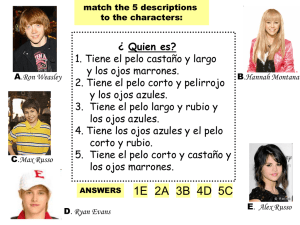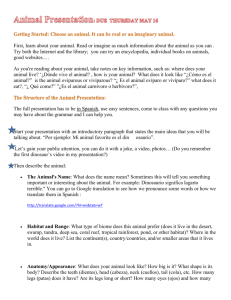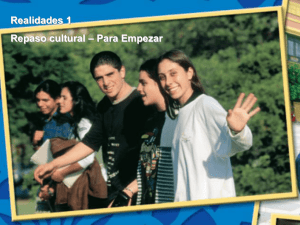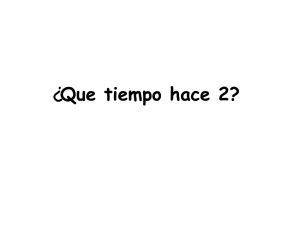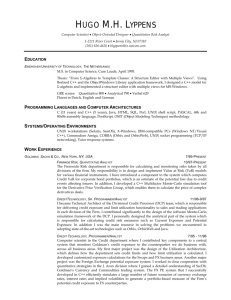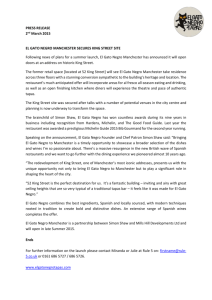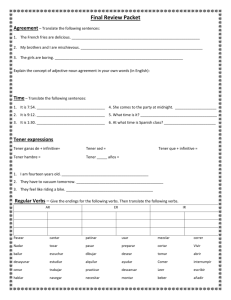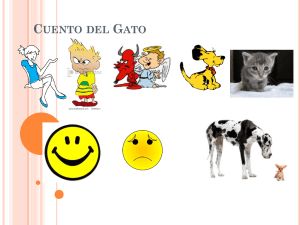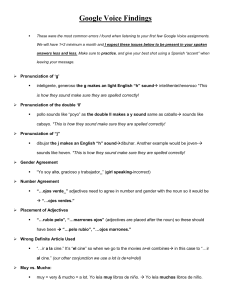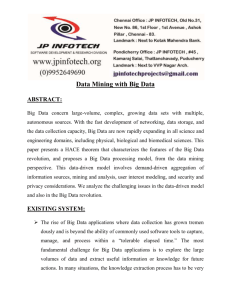Self-Correction Key CODE REASON/REMEDY EXAMPLES WO
advertisement
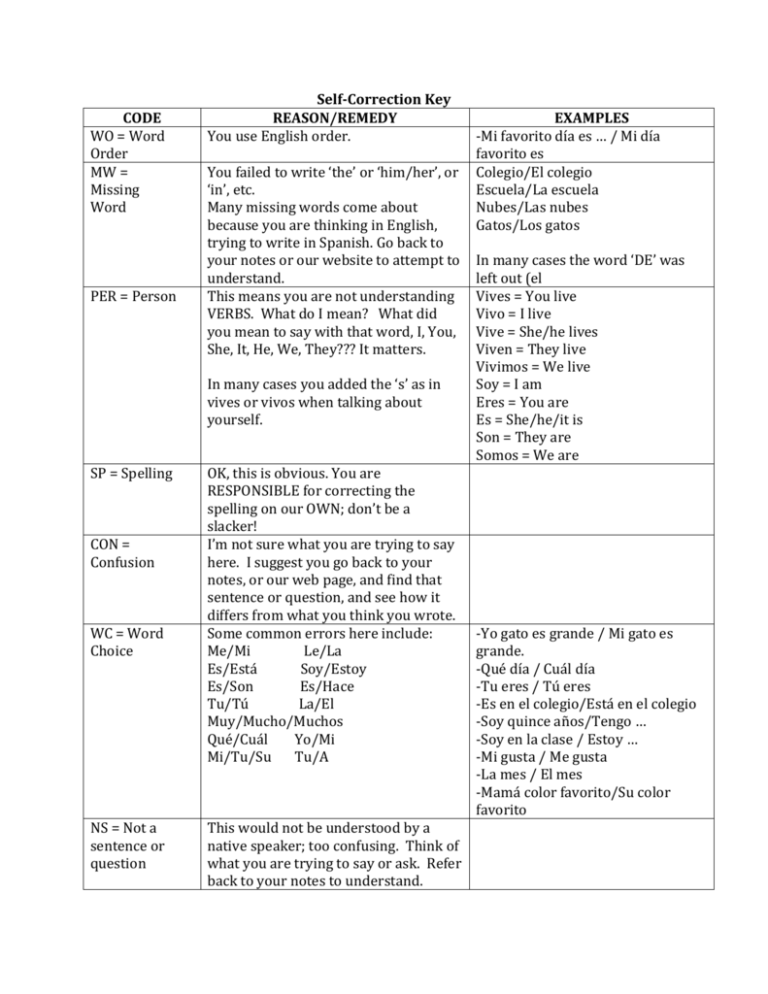
CODE WO = Word Order MW = Missing Word PER = Person Self-Correction Key REASON/REMEDY You use English order. You failed to write ‘the’ or ‘him/her’, or ‘in’, etc. Many missing words come about because you are thinking in English, trying to write in Spanish. Go back to your notes or our website to attempt to understand. This means you are not understanding VERBS. What do I mean? What did you mean to say with that word, I, You, She, It, He, We, They??? It matters. In many cases you added the ‘s’ as in vives or vivos when talking about yourself. SP = Spelling CON = Confusion WC = Word Choice NS = Not a sentence or question OK, this is obvious. You are RESPONSIBLE for correcting the spelling on our OWN; don’t be a slacker! I’m not sure what you are trying to say here. I suggest you go back to your notes, or our web page, and find that sentence or question, and see how it differs from what you think you wrote. Some common errors here include: Me/Mi Le/La Es/Está Soy/Estoy Es/Son Es/Hace Tu/Tú La/El Muy/Mucho/Muchos Qué/Cuál Yo/Mi Mi/Tu/Su Tu/A This would not be understood by a native speaker; too confusing. Think of what you are trying to say or ask. Refer back to your notes to understand. EXAMPLES -Mi favorito día es … / Mi día favorito es Colegio/El colegio Escuela/La escuela Nubes/Las nubes Gatos/Los gatos In many cases the word ‘DE’ was left out (el Vives = You live Vivo = I live Vive = She/he lives Viven = They live Vivimos = We live Soy = I am Eres = You are Es = She/he/it is Son = They are Somos = We are -Yo gato es grande / Mi gato es grande. -Qué día / Cuál día -Tu eres / Tú eres -Es en el colegio/Está en el colegio -Soy quince años/Tengo … -Soy en la clase / Estoy … -Mi gusta / Me gusta -La mes / El mes -Mamá color favorito/Su color favorito L1I = Language One Interference This is the hurdle you must overcome. This is your English brain (the bully) beating up your young Spanish brain. You must protect your developing Spanish brain. When you write or speak, you will do so with whatever your brain will give you. As you develop your Spanish brain, this will be English, for a while. -Jorge’s color / El color de Jorge -Jorge los ojos es verde / Los ojos de Jorge son verdes. -Que tiempo es hoy/Que tiempo hace hoy -Mi mamá nombre / Mi mamá se llama -Mi es alto / Yo soy alto Mi llama es / Me llamo En invierno es frío / En invierno hace frío TU = NOT “to” A = to GEN = Gender You are giving two different genders. POSS = Possession Who? Whose? Puede Use of puede Hay, Tiene, Son Placing items in other items Months or Weather in Season Examples: La elefante es gordo (La is for she, gordo is for he.) NO-Mi mamá es alto y delgado. Yes-Mi mamá es alta y delgada. No-Mi papá ojos verde / Yes-Los ojos de mi papá son verdes. No-¿Qué es mes favorita? / Yes-¿Cuál es su/tu mes favorito? No-Jorge dieta es mala Yes-La dieta de Jorge es mala No-¿Qué color es tu madres ojos? Yes-¿Cuál es el color de los ojos de tu madre? No-El mono color es verde. Yes-El color del mono es verde. No-Mi amiga la piel morena. Yes-Mi amiga tiene la piel morena. Yes-La piel de mi amiga es morena. No-Jorge amigo es Dora Yes-La amiga de Jorge se llama Dora No-El mi coche rojo es Yes-Mi coche es rojo Yes-Mis ojos son azules No-El tigre correr (El tigre puede correr) Yes-El gato vivir (El gato puede vivir) El verano tiene los meses de junio, julio, y agosto. Hay nieve en el invierno. En la estación de invierno hace frío pero hace sol a veces. El perro y el pájaro son animales mansos, no peligrosos. Beber, Comer Other Poco , Pequeño Beber= to drink Comer = to eat La bebida = the drinks/beverages La comida = the meal/food Llueve = it rains Lluvia = the rain Nieva = it snows Nieve = the snow Poco = little, pocos = few Pequeño = small

